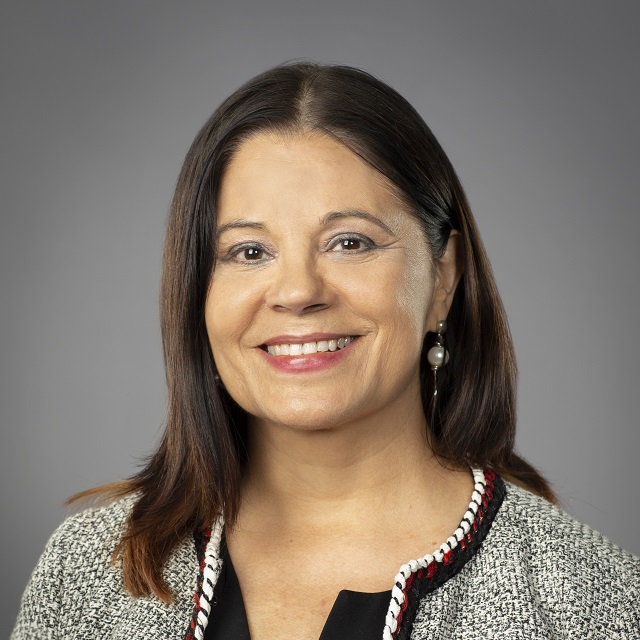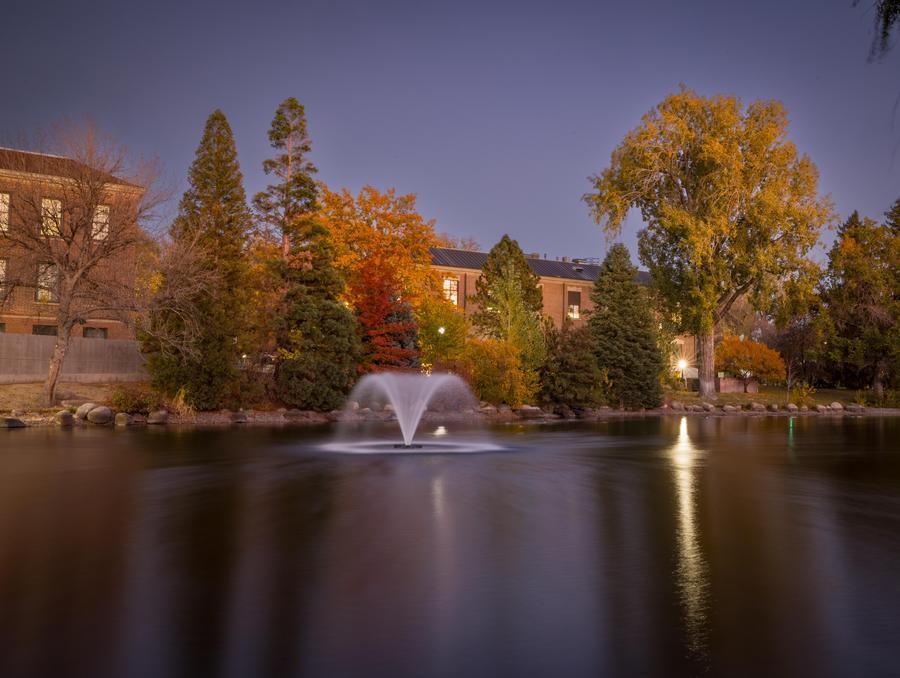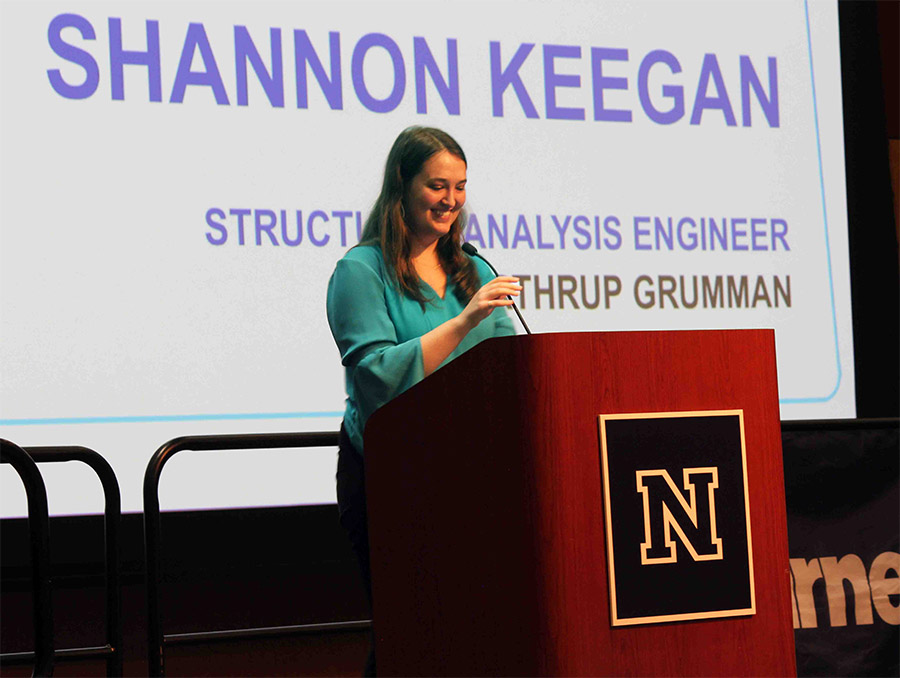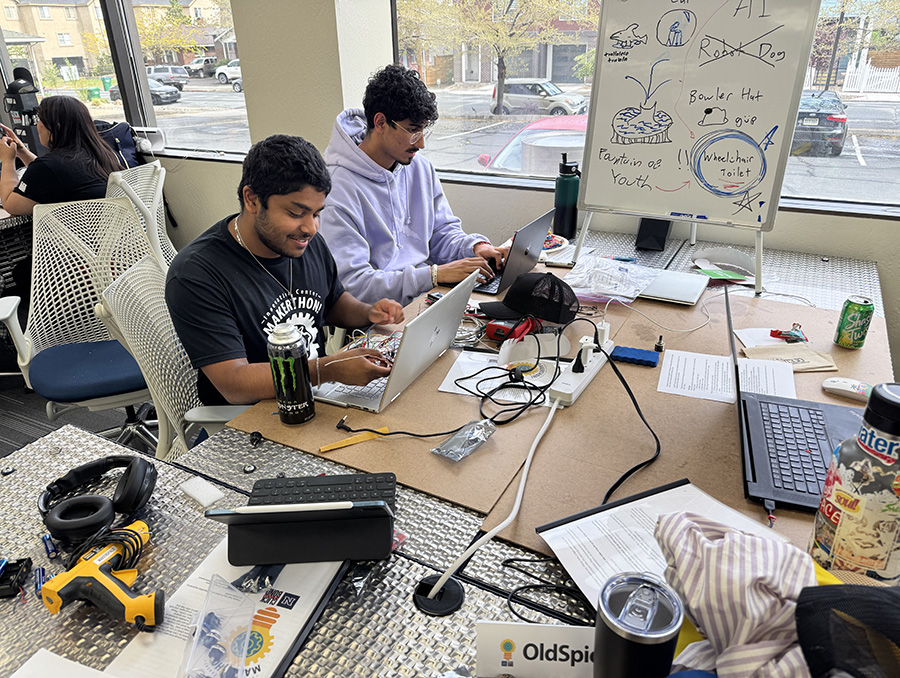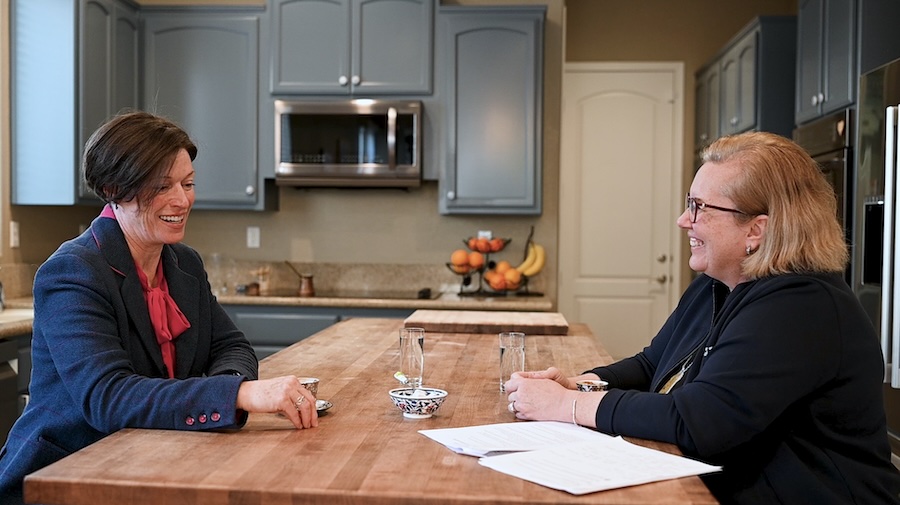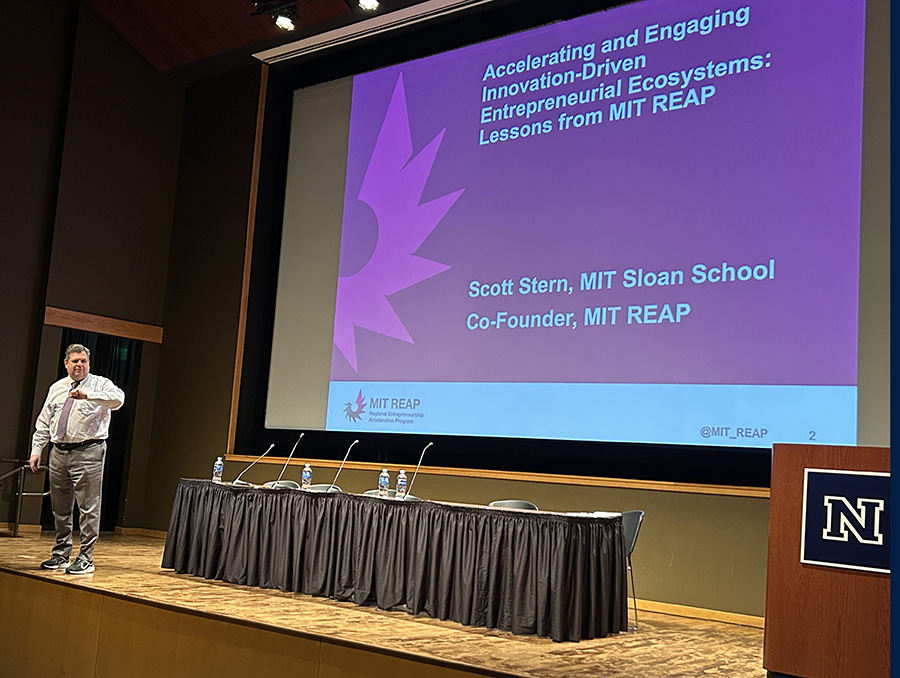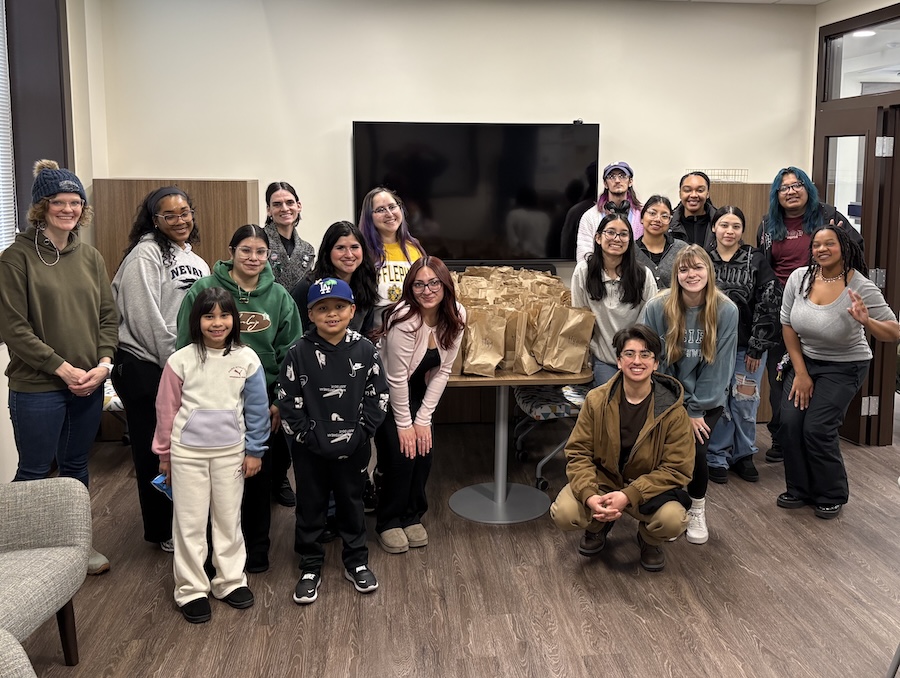Pride Festival 2021: Celebrating identity and freedom, looking ahead
University Diversity & Inclusion Officer Eloisa Gordon-Mora sat down with Lydia Huerta and Jake Marble to talk about Pride and LGBTQIA+ issues
We will soon be celebrating Pride Festival 2021, a joyous festivity in so many ways, including being able to be back in person! As part of our office of Diversity & Inclusion’s preparations for the day, July 24th – be sure to drop by our booth! – I met with Dr. Lydia Huerta-Moreno and Jake Marble, who shared these very perceptive views and comments.
We just celebrated Pride Month, a yearly commemoration resulting from the June 28, 1969 raids of the Stonewall Inn in Greenwich Village, which galvanized the resulting manifestations and the ever-evolving LGBTQ+ social and human rights movement. Decades removed from those origins, what are your feelings, thoughts, hopes, concerns at this national conjuncture of where we are as a society and looking into the immediate future, but also in light of the upcoming, July 24th Northern Nevada Pride Parade and Festival, of which we, at the University of Nevada, Reno, are co-sponsors?
Jake: Being raised in an extremely religious and conservative environment, I spent most of my life put off by Pride Month. My internalized homophobia found it excessive that individuals who identified as LGBTQ+ felt the need to parade their lifestyles in the streets. Embracing my identity as a gay male over the past several years and educating myself about LGBTQ+ history has since transformed my perspective. The Pride celebration represents freedom from generations upon generations of discrimination, violence, hatred, fear of oppression, and genocide. We parade the streets because we can finally safely exist in the streets. Hand in hand, lovers can feel seen; for some, this will be a first. The Pride celebration creates a safe space for individuals of all backgrounds within the LGBTQ+ community. Whether out and proud or closeted, there is space for everyone to feel included, supported, and able to freely express themselves. United together, we create an environment sustainable to heal from previous or current wounds and raise our vision of what we can become.
Lydia: Much like Jake I did not grow up celebrating Pride. I grew up in Mexico in a rather Catholic family. When I moved to the U.S. I was able to figure out that I was attracted to both men and women, and that there were communities for people like me. Then, in the process of my own self-discovery and my studies, I was able to learn more about the histories of LGBTQ+ communities in the U.S.. For me Pride is an opportunity for our communities to celebrate and heal, feel seen, be open about who we love, dance freely and feel a sense of belonging. However, it is also important to remember, that the work doesn’t end—that we can celebrate because others have endured and suffered, and that there is no pride for some of us without liberation for all of us. We have to be aware that while we celebrate Pride month there are many trans-sisters locked up in detention centers, awaiting decisions about their asylum cases, that the statistics of trans murders in the U.S. is unacceptable, that there are still states that believe people like us should not exist.
We all have multiple identities—race, ethnicity, gender, gender identity, sexual identity, social class and so forth—but since you, Lydia, are a faculty member of the College of Liberal Arts, and you, Jake, a current medical student at the School of Medicine, what are some of the issues that you might want to share from those intersections?
Jake: As a gay medical student I am hyper-aware of the interplay between minority statuses and health disparities, especially in regards to the LGBTQ+ community. While it is easy to only see issues such as HIV or other STIs, there are ample barriers to health care, many of which include patient fears from being outed, harassed, and even assaulted in healthcare settings. The distrust for medical professionals is rampant within the LGBTQ+ community. As a gay medical professional I aim to represent and bridge both communities together to increase respect for one another and provide greater healthcare outcomes. As the MedPride president I have been able to participate in many training and outreach events and am very hopeful about the trajectory of LGBTQ+ healthcare.
Additionally, I am a gay survivor of sexual violence. I am currently creating an organization called Speak Up Not Man Up to foster conversation regarding male victims of sexual violence. Statistics suggest that forty percent of gay males have experience some form of sexual violence; that is more than twice the national average for men. While the entire LGBTQ+ community has increased rates of sexual violence, I feel like I can make the most difference using my background to reach and raise awareness for male victims and survivors. Follow @SpeakUp_NotManUp for more information and updates.
Lydia: Jake, I agree, building trusts between healthcare professionals and LGBTQ+ communities is important. In terms of my own intersections, you know, it is difficult to speak about some of the issues because they are very painful. For example, at my former, first tenure-track job in a very conservative town and school, I remember getting homophobic messages the first months of teaching and in one instance my life was threatened. I am Mexican and bi, and I didn’t want to be targeted further so for the sake of survival, so I decided to hide my sexual identity. I kept my relationships secret. To counterbalance that, I also opted to work to create safe spaces for students and changing the homophobic culture around campus through my teaching and creation of a center for gender equity. My privilege as a faculty member helped me establish the center and collaborate with the town to organize their first Pride. When I received the job at UNR, I vowed never to hide who I was in all my intersections—and let me tell you it feels great to be able to live without hiding aspects of myself. I mainly use my intersections to challenge assumptions about me in my teaching, on panels, and through my research. I also support and volunteer for local community organizations doing great intersectional work to support BIPOC and LGBTQ+ communities, like the Sylvia Rivera Center for Social Justice and Animarte.
Looking into the upcoming academic year, what should we be doing to better support our diverse LGBTQ+ communities—most certainly, our students—but also our faculty, staff and other community members?
Jake: The most pressing matter at hand is spreading awareness of the need to protect and support the transgender community. They face extreme adversity from people who haven’t taken the time to fully contemplate the challenges they are imposing upon transgender individuals. There are many educational and community resources to provide support for not only LGBTQ+ communities, but also anyone wanting to better understand our community. These organizations are extremely resourceful and we should be empowering and supporting their ideologies.
Lydia: I agree with Jake, we need to do better by our trans students, faculty, and staff. Simple things we can all do is respect the use of pronouns instead of mocking them, learn preferred names over the “official names”, and know the resources UNR provides for name changes and such. Also, it is essential not to forget other members of the LGBTQ+ community on campus and be mindful of how they experience biphobia and homophobia on campus without dismissing their experiences. We all need to learn how to be compassionate, hold space, and communicate better to support and encourage a sense of belonging. If anyone is curious about courses that can help in graining perspective on gender related topics and ways to support I recommend checking out courses in the departments of Gender, Race and Identity, Communication and Sociology.
To end on a lighter note, what aspects of your identity might be a surprise for folks?
Jake: There are many stereotypes surrounding gay males. As a result, people are not often surprised by my passions for dancing, cooking and baking, but are, however, surprised by my outdoor abilities. As an eagle scout I learned to start a fire with flint and steel, use a compass to navigate the outdoor wilderness, and cook a mean Dutch-oven cobbler. I love to camp, climb, kayak, hike, ski, zipline, etc. You name it and I've probably done it or will go out and join you. Outdoor adventure has helped me connect with myself and many others, bringing a sense of unity in a variety of aspects to my life. My entire life I was told that my feelings were unnatural and inhuman. However, being connected with nature I have learned that my sexuality is as natural and human as it gets. I am always on the lookout for new places to adventure and explore, so reach out if you have any suggestions as I am new to the Reno area.
Lydia: That is a great question! Most people are surprised by the fact that I speak three languages fluently. They usually expect two, but the third one takes them by surprise. I think sometimes people are also surprised because when they see me (I am big and take up space), they assume I am unapproachable, intimidating and commanding. Then they get to know me and are surprised that I am actually quite approachable, humane and compassionate. Also, when people meet me outside my faculty role, they tend to be surprised that I am an academic.
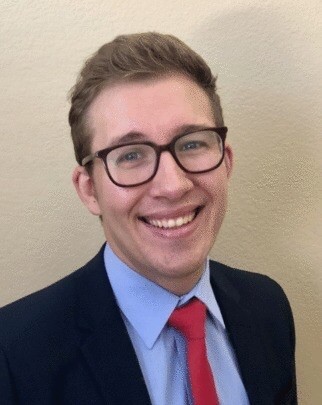
Jake Marble is currently a rising second year medical Student at University of Nevada, Reno School of Medicine. He is currently researching novel resuscitative devices with the University of Utah and hopes to incorporate research into a future career as an emergency medicine physician. As the current MedPride president at the university, Jake spends much time advocating for the LGBTQ+ community and working on creating a more equitable environment for all patients in healthcare. Jake is also the founder of Speak Up Not Man Up, a organization raising awareness and support for male victims and survivors of sexual violence. In his down time, he enjoys traveling, baking, dancing, the outdoors, and adventuring with family, friends, and his partner.
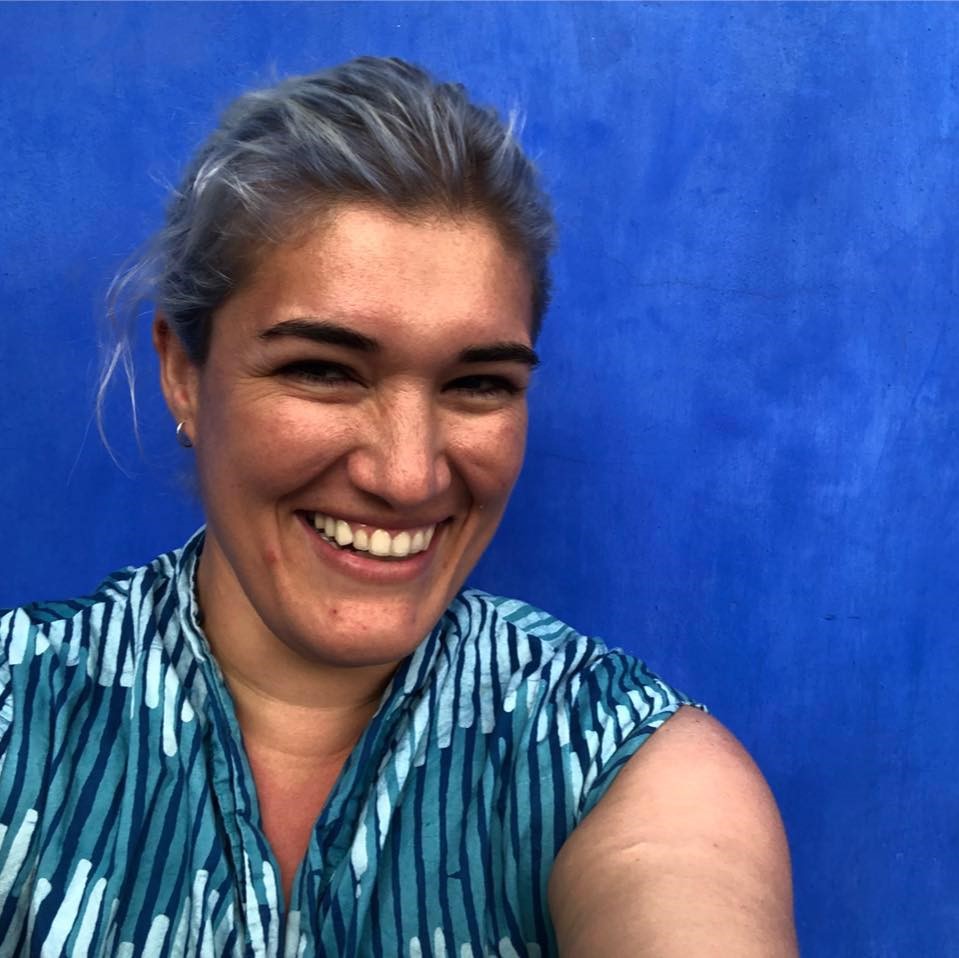
Lydia Huerta Moreno, Ph.D. is an assistant professor of gender, race and identity and communication at the University of Nevada, Reno. She is a feminist decolonial interdisciplinary scholar. Her work focuses on the ethics of representation in cultural narratives centered on migration, human rights, violence, race and gender in film and social media. Specifically, she studies the power of representations in shaping affects and moral attitudes in Latinx, Mexican and Brazilian cultural studies.

